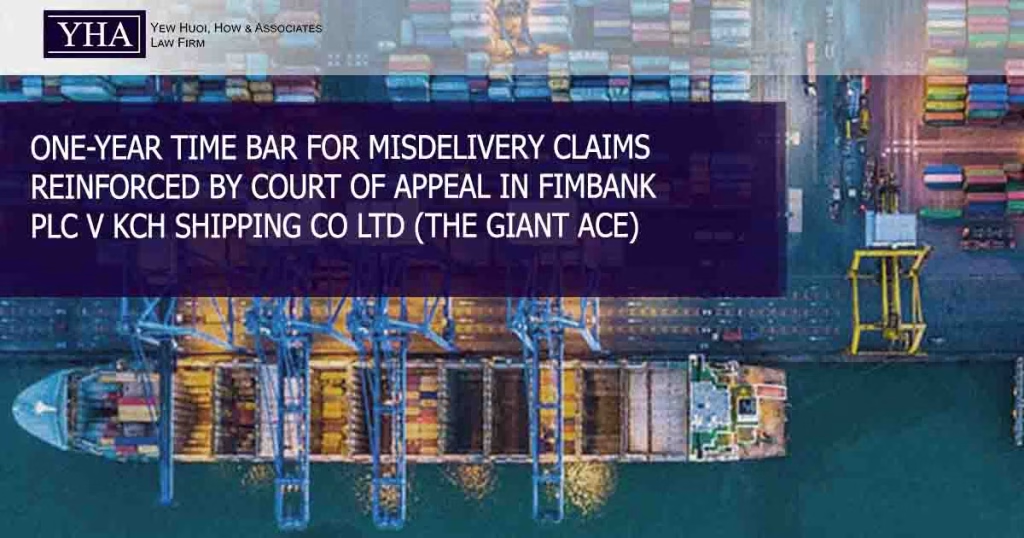Summary and Facts
FIMBank plc v KCH Shipping Co Ltd (The Giant Ace) [2024] 1 All ER 502 primarily regards the carriage of goods by sea and the time limits for bringing claims related to the misdelivery of cargo. FIMBank plc is the claimant, a bank that financed the purchase of coal. KCH Shipping Co Ltd is the respondent, a demise charterer of the vessel The Giant Ace and the contractual carrier under the bills of lading. The case revolves around 13 bills of lading covering a shipment of 85,510 metric tons of coal from Indonesia to India. The bills were on the Congenbill (1994) form, incorporating the terms of a voyage charterparty governed by English law and subject to the Hague-Visby Rules (which is applicable in Malaysia pursuant to the Carriage of Goods by Sea Act 1950 (“COGSA”)). The cargo was discharged in India and stored in a customs bonded stockpile. FIMBank, as the holder of the bills of lading, financed the cargo but was never paid. The cargo was misdelivered to persons who were not entitled to receive it, leading FIMBank to claim damages for misdelivery from the carrier.
Legal Issues
- The main issue was whether the one-year time bar under the Hague-Visby Rules for bringing claims also applied to claims of misdelivery occurring after discharge of the cargo from the vessel.
Court Findings
- The court emphasized that Article III Rule 6 of the Hague-Visby Rules had been amended to discharge the carrier from “all liability whatsoever in respect of the goods” unless suit is brought within one year of the delivery or the date when the goods should have been delivered.
- The use of “all liability whatsoever” broadened the scope of the time bar, meaning that it could apply even to misdelivery claims occurring after discharge.
- The court reviewed the preparatory work (travaux préparatoires) of the Hague-Visby Rules to confirm the intention behind the amendments.
It found that the purpose was to extend the time bar to cover claims for misdelivery even after the cargo had been discharged, making it clear that misdelivery fell within the one-year time limit. - The Court of Appeal upheld the lower court’s decision, ruling in favor of the carrier (KCH Shipping). The one-year time bar under Article III Rule 6 of the Hague-Visby Rules applies to misdelivery claims, even if the misdelivery occurred after the cargo was discharged from the vessel. Since FIMBank had initiated arbitration more than one year after the cargo should have been delivered, its claim was time-barred.
Practical Implications
The amendment gives carriers much stronger legal protection. By applying the one-year time bar to all liabilities, including misdelivery, carriers can more effectively limit their exposure to claims that arise after discharge, particularly in situations where they may not have direct control over the goods. Cargo owners, banks, and other parties with interests in the goods must now be vigilant about ensuring that claims are brought within one year, even if the issue arises after the goods have been discharged.

